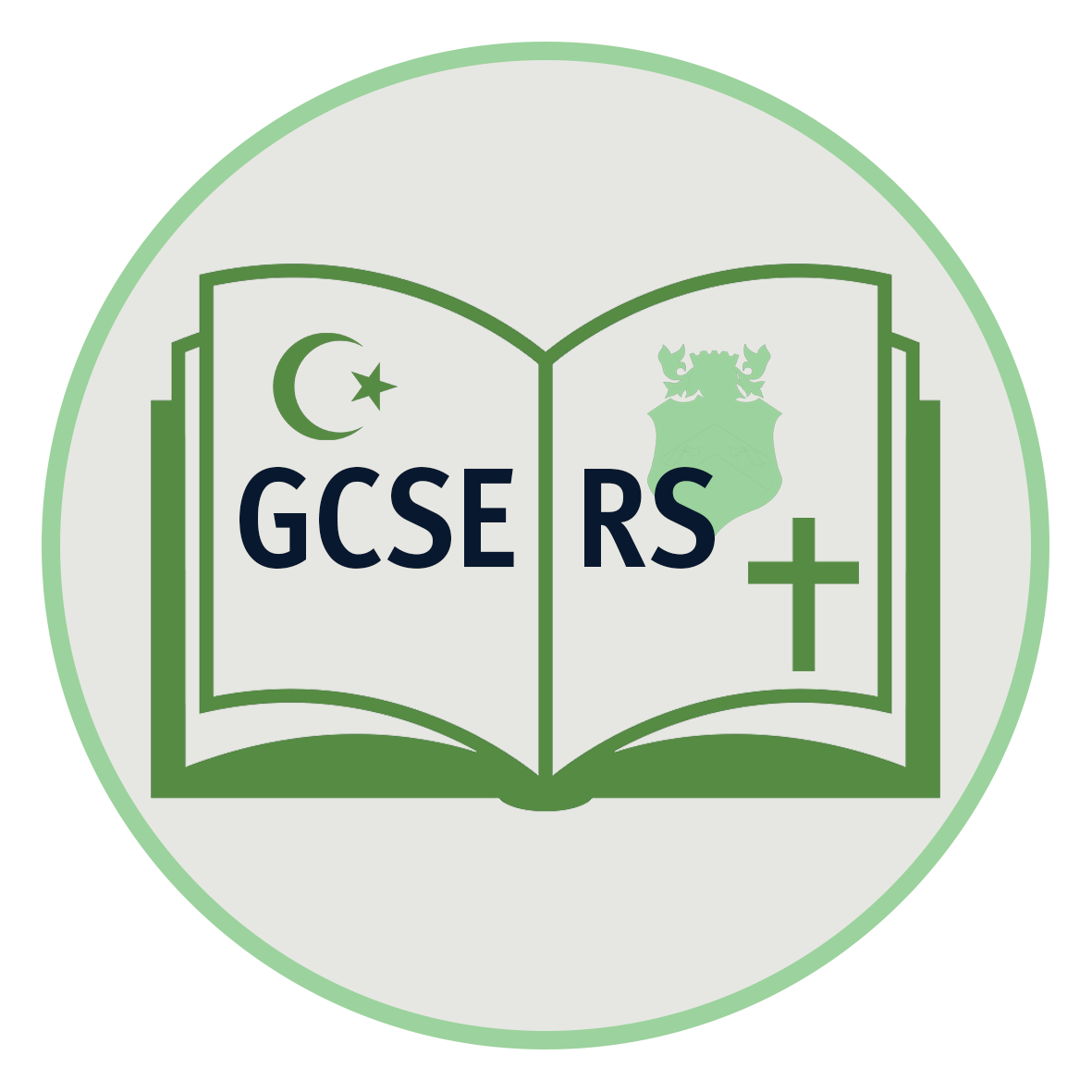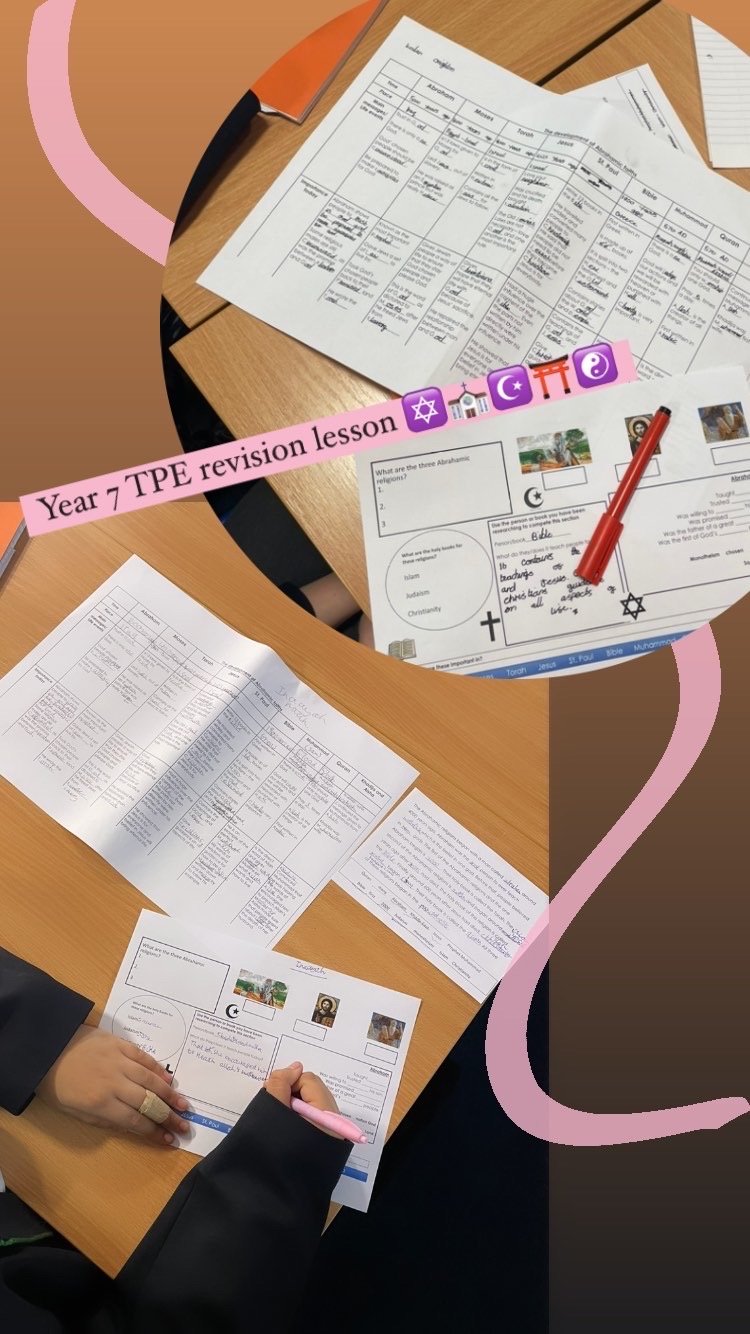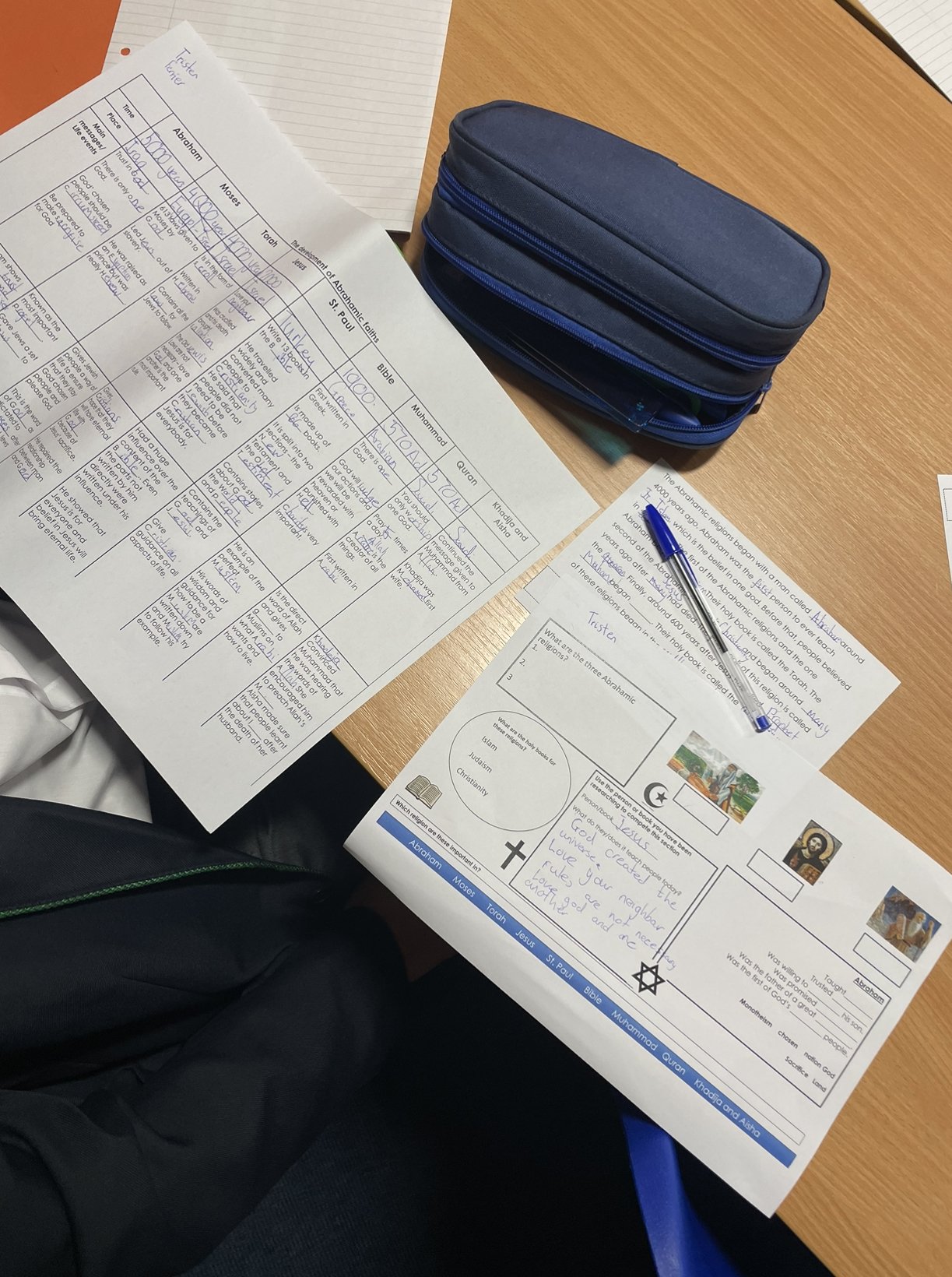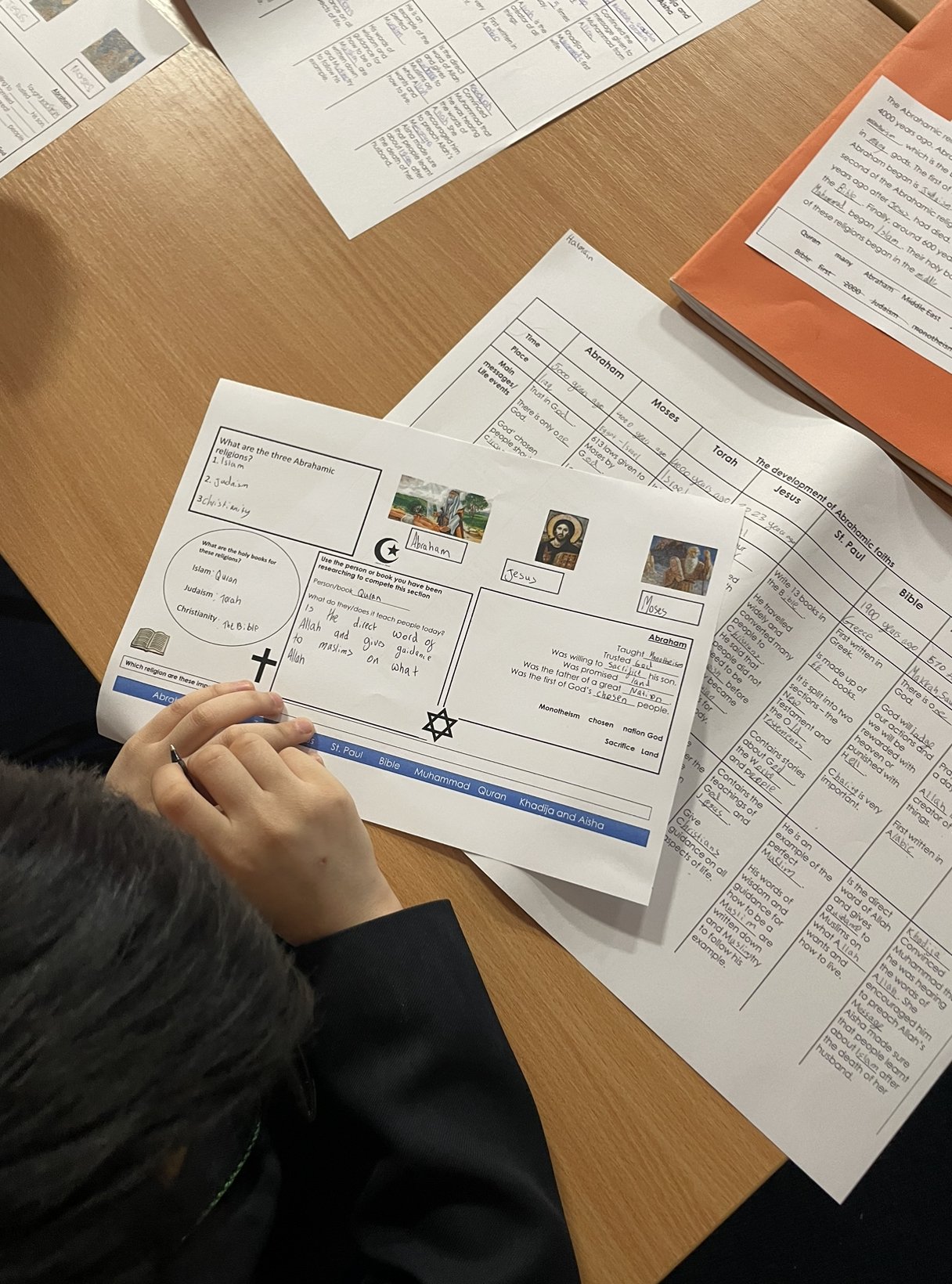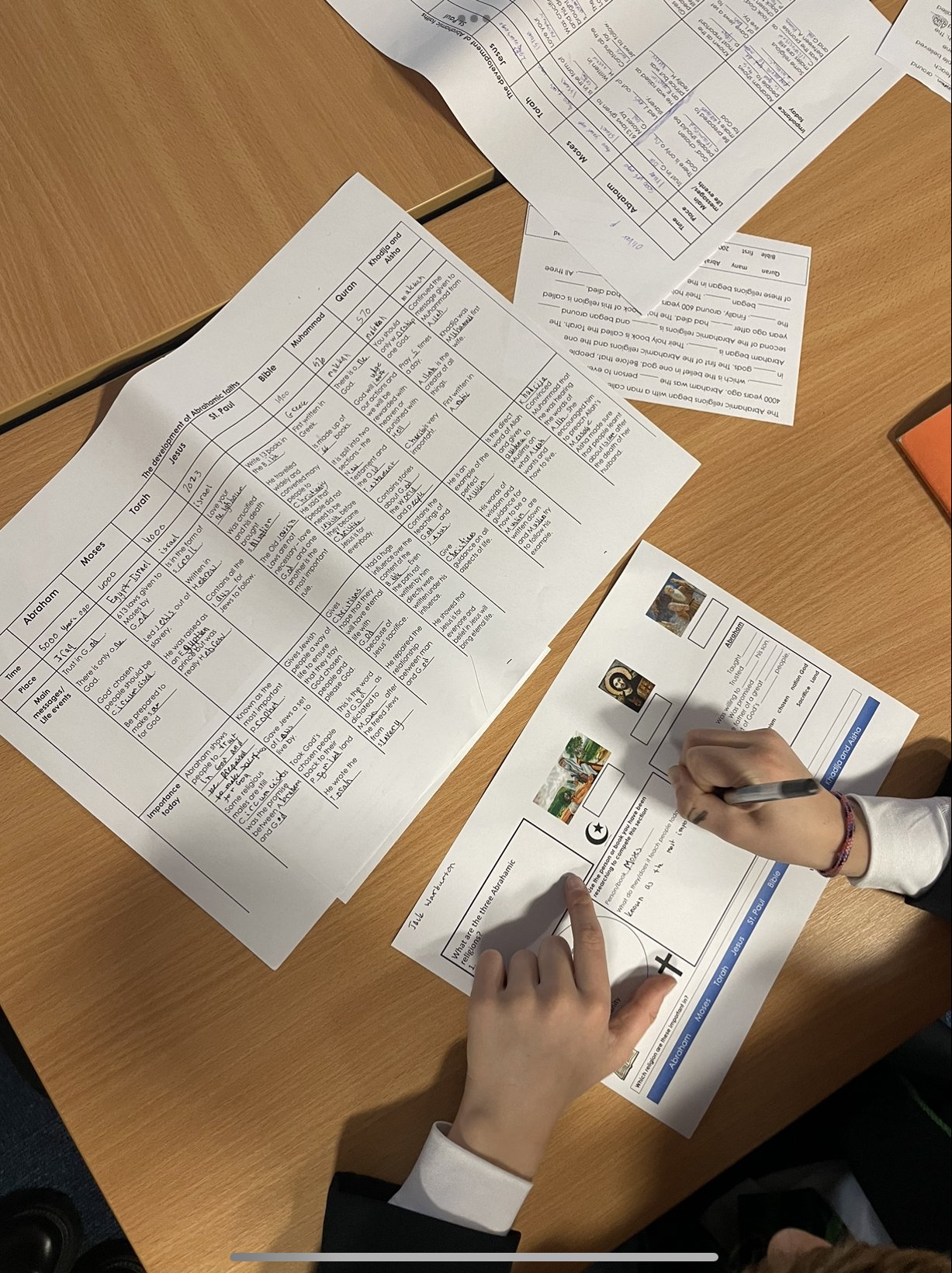theology, philosophy and ethics
SMSC
Spiritual Moral Social and Cultural development
Spiritual development – pupils are given opportunities to form and reflect upon their own beliefs and opinions about life. In the classroom they show respect for other people’s faiths, beliefs and values. Pupils enjoy developing their personal opinions and learning about the world’s religions. We use a range of creative and imaginative ways to teach and for pupils to show their understanding.
Moral development – throughout Theology Philosophy and Ethics pupils explore life issues. They are encouraged to form their own opinions in moral decision making. They are aware of current laws and legislation in regard to such life issues. A skill nurtured throughout RE is the ability to give reasoned views about moral and ethical issues and also show an understanding of an opposing view to their own.
Social development – In the classroom, pupils from different backgrounds work together. All pupils are willing to work together in the classroom and are cooperative. Pupils are taught the British Values of democracy, the rule of law and tolerance towards those who have faith and those who do not. They are taught this
Cultural development – Pupils explore multi-cultural Britain and appreciate the variety of cultures that have contributed to everyday life in Britain. Learning about the major world religions allows that to have an appreciation of the cultural development of others and they show an interest in exploring this. Pupils are taught to show respect to people from other faith, cultural and socio-economic backgrounds locally and globally. This is explored through the life issues and morality units we study.
Useful Links
Subject Overview
There are two members of staff in the TPE department. Mrs Cooper (Head of TPE) and Miss Griffiths. At Redhill, all pupils study Theology, Philosophy and Ethics in years 7-9. Pupils opt to TPE at GCSE in Year 10. However, Religious Education is also delivered within PSHE lessons at KS4. Pupils can choose to study Religious Education at GCSE. For the GCSE course, pupils study Christianity and how Christians respond to ethical issues of crime and war. They also study Islam and how Muslims apply their beliefs to moral issues with humans and the world.
In TPE, pupils will consider historical and contemporary topics in the disciplines of Theology, Philosophy and Ethics. Pupils will study the theoretical elements of these challenging subjects, taking inspiration from well-established scholars to form personal opinions about some of life’s biggest questions.
Pupils will also be learning about religion and learning from religion in order to explore the ideas that most faiths offer as answers to life’s deepest questions. Pupils will enhance their knowledge of the development of faith and its influence on individuals, culture, behaviour and national life. This in turn ensures they develop an understanding of our multi-cultural society and how faith plays a part in Britain’s institutions of law and government.
The curriculum is sequenced to ensure depth and there are cross-curricular links with PSHE, to ensure the breadth is delivered too.
Year 7 Units of Study: What are Theology, Philosophy and Ethics? Does evil and suffering mean God does not exist? How did modern faith develop? How do people express their beliefs?
Year 8 Units of Study: How should we live? How do we express our spirituality? How does faith adapt to the modern world? How are ethics applied to key issues? What does religion say about wealth and poverty?
Year 9 Units of Study: What does theology say about science? What happens when we die? How does theology deal with medical science issues?
Year 10 GCSE RS Units of Study: Christian beliefs, Crime and punishment, Muslim beliefs, Marriage and Family
Year 11 GCSE RS Units of Study: Peace and Conflict, Living the Muslim Life, Matters of life and death, Revision
INTENT
In this subject, pupils will consider historical and contemporary topics in the disciplines of Theology, Philosophy and Ethics. Pupils will study the theoretical elements of these challenging subjects, taking inspiration from well-established scholars to form personal opinions about some of life’s biggest questions. Pupils will also be learning about religion and learning from religion in order to explore the ideas that most faiths offer as answers to life’s deepest questions.
Pupils will enhance their knowledge of the development of faith and its influence on individuals, culture, behaviour, and national life. This in turn ensures they develop an understanding of our multi-cultural society and how faith plays a part in Britain’s institutions of law and government.
They will learn to be open minded to other points of view and to identify and challenge misconceptions and prejudice, to listen to each other and not be afraid of making their own voice heard, justifying their viewpoint with reasoned consideration. Pupils will become critical thinkers that are curious about human nature and the meaning of life.
The curriculum is spiral, in that the knowledge and skills learnt in each topic is a pre-requisite for future topics. Our curriculum will ensure that pupils have a breadth of knowledge about the major world religions, philosophical themes, ethical theories and a depth of knowledge about the religions present in the local area.
Pupils will answer the key topic questions at the end of each topic to allow reflection in regard to their own worldview. They will be assessed formally using an end of topic assessment to ascertain understanding of knowledge and level of skill.
WIDER SCHOOL OPPORTUNITIES
We have mapped the required ‘cultural capital’ for our GCSEs into our KS3 curriculum. Pupils explore challenging theological and philosophical concepts throughout the KS3 curriculum for them to gain the highest levels at GSCE. Subject specialist language is used throughout the curriculum from Year 7 onwards.
Pupils explore global cultures, local and national communities through their study of religion. How religion affects the life of contemporary believers is a key element of their studies and thus the course fosters an understanding of British society.
Through studying TPE pupils can see clear links to careers in caring, social justice and charity work. Compassion is a key part in religions and many people's faith can lead them into jobs in the social, medical or care sectors.



